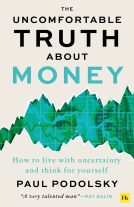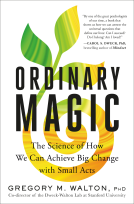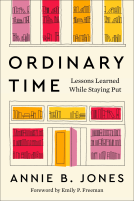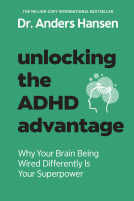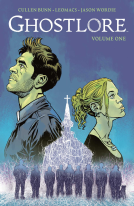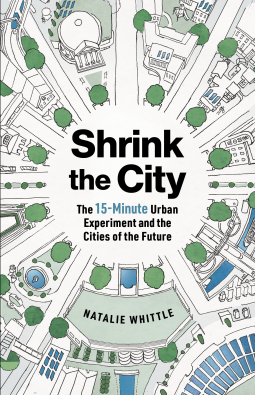
Shrink the City
The 15-Minute Urban Experiment and the Cities of the Future
by Natalie Whittle
This title was previously available on NetGalley and is now archived.
Send NetGalley books directly to your Kindle or Kindle app
1
To read on a Kindle or Kindle app, please add kindle@netgalley.com as an approved email address to receive files in your Amazon account. Click here for step-by-step instructions.
2
Also find your Kindle email address within your Amazon account, and enter it here.
Pub Date Sep 10 2024 | Archive Date Sep 09 2024
Talking about this book? Use #ShrinktheCity #NetGalley. More hashtag tips!
Description
This file is NOT currently available for Kindle. We apologize for any inconvenience. If you have difficulties with downloading, please email us (at publicity@theexperimentpublishing.com) for assistance or leave a note in lieu of a review rating.
Cities define the lives of all those who call them home: where they go, how they get there, and how they spend their time. But what if we built our cities differently? What if we traveled differently? What if we could get a cashback on time and use it to live in a new way?
In this fascinating, meticulously researched and reported, and readily accessible book, longtime Financial Times journalist Natalie Whittle looks at metropolises all over the world to consider the idea of the 15-minute city, defined as a city that is designed so that everyone who lives there can reach everything they need within 15 minutes on foot or by bike. Whittle helps us to understand its pros, its cons, and its potential to revolutionize modern living. With global warming reaching a crisis point and the post-pandemic world bringing a previously unimaginable decline in commuting, Whittle’s timely book serves as a call to reflect on the “hows” and “whys” of our basic relationship to our neighborhoods, cars (“Above all, the 15-minute city asks us to turn away from the perceived convenience of the fossil fuel car”), all of our daily comings and goings.
Building her study by carefully considering how we use space and time, Whittle traverses both, collecting models from ancient Athens to modern Paris and New York that demonstrate how one idea could change our daily lives—and the world—for good.
Available Editions
| EDITION | Other Format |
| ISBN | 9781891011894 |
| PRICE | $16.95 (USD) |
| PAGES | 172 |
Links
Available on NetGalley
Featured Reviews
 JD L, Reviewer
JD L, Reviewer
I received a free ARC from NetGalley, and this review is voluntary
The literature discusses the theory of the 15-minute city, or an urban landscape developed to be tighter, and more connected. More pathways for walking, and cycling as a means of transpiration. Introducing greener buildings, or a more equitable environmental. Pushing for interconnectivity to allow for overall accessibility.
Some takeaways:
In the pre-face, there is mention of redlining in Zoning, which is a discriminatory practice in housing policy; however, it's not touched upon enough in the rest of the literature, vis-a-vis the impact of the policy itself on homeownership for African-Americans, at least as it relates to the history of real estate in the United States. What it means to be born in the wrong Zipcode.
I found the first chapter to be chalk full of information, but with the way it's presented it does ramble a bit. Swinging back and forth between past and present, to provide examples to highlight the idea currently being discussed, per the view of the 15-minute city.
The rest of the chapters are written from the perspective of what has worked in other areas. Provided to the reader as less of a comparative analysis, but how it could work, because of what's already worked elsewhere. Overall, it's not a bad read. The concept of the 15-minute city is an interesting one for urban planning. When it comes to how things are for us on the American side, I'm not sure how the theory would manifest if there was enough space for it. What I do think, though, is that pieces of the theory can be introduced within our existing framework. A slow, or gradual change from within. It won't be perfect, but until we start to tackle the root problems, and generate remedy for those problems, the status quo will remain.
A couple of things I think should have been mentioned:
The re-usage of existing buildings. A good chunk of the literature discussed work-from-home policy, or mentioned the pandemic, which inevitably led some businesses to shutter their doors, or change company policy so folks can work from home, which potentially leaves a building empty. There are complications both on the alteration and renovation side, as well as building codes, but for what can be re-used or re-purposed to meet the end goal of the 15-minute city should be included.
And lastly, unless I missed it, I don't believe accessibility for those with disabilities was mentioned, which ironically - accessibility, is the heart of the 15-minute city policy. Can't tell you how many older buildings I've walked into without an access ramp for those with wheelchairs, or a bathroom that doesn't provide handrails, or a turning radius in the bathroom for a wheel chair user. In order to have an ideal city that works for all, it must include all. That should be discussed a bit more as part of the actual thesis statement. Accessibility through inclusivity.
Otherwise, this was well-written and researched. Should probably take a second look to see if it could be organized a little better, but it was very informative.
I couldn't put this little book down. Whittle does a great job explaining the 15 minute city, its history, and possible problems that this urban planning schema presents. Take it one chapter at a time or devour it in one read like I did. Shrink the City is a nonfiction book that takes you on a tour of the future.
Readers who liked this book also liked:
Mamenosuke Fujimaru
Comics, Graphic Novels, Manga, Romance, Sci Fi & Fantasy

